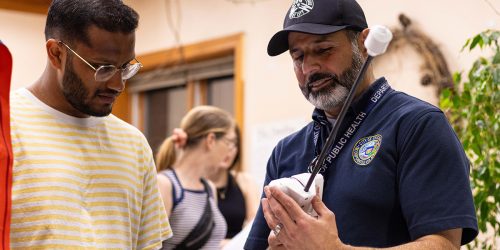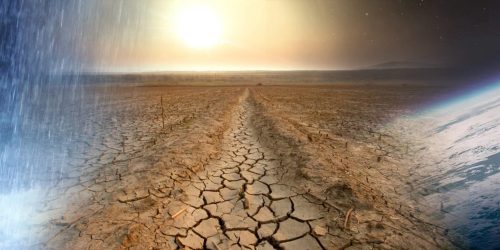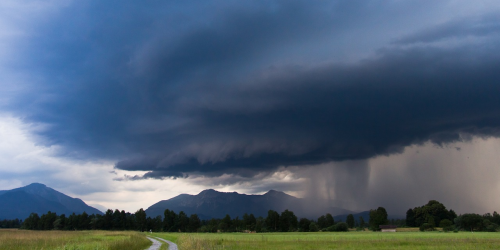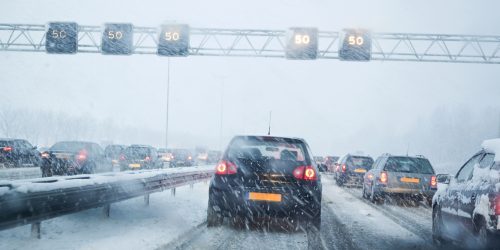NOAA CPO’s Coastal and Ocean Climate Applications (COCA) Sustainable Fisheries in a Changing Climate Program is announcing five new projects to support resilient Northeast fishing communities. The new projects will improve understanding of socio-economic impacts from changing climate and ocean conditions on fishing communities from Cape Hatteras, NC through Maine. Ultimately, the results will help increase the capacity of fishing communities and fisheries managers to assess, prepare for and reduce risks.
Support for these projects is part of a long-standing partnership with the NOAA Fisheries Office of Science and Technology to advance understanding of current and future climate-related impacts on living marine resources and the communities that depend on them. The NOAA Fisheries Northeast Fisheries Science Center (NEFSC) New England Groundfish in a Changing Climate research program also provided funding for two of the groundfish related projects. Total funding for the competitively-selected projects is $1.36 million over two years.
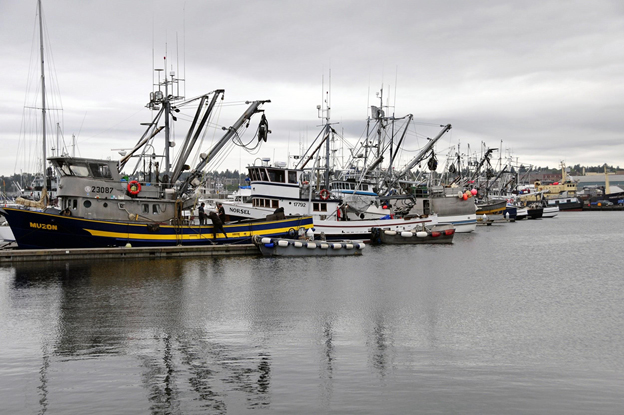
Healthy and productive fisheries are an essential component of the U.S. blue economy and society. In 2016, U.S. commercial and recreational fishing supported 1.7 million jobs, generated $212 billion in sales, and contributed $100 billion to the U.S. Gross Domestic Product 1. Sustainable fisheries create and maintain jobs, stabilize economies in coastal areas, support working waterfronts, provide opportunities for commerce, and help meet the growing demand for seafood.
A key component of sustainable fisheries are fishing communities that are resilient to weather and climate-related impacts. Fishing communities vary in size2 and composition, from smaller towns to larger ports, and rely on sustainable working waterfronts for processing, sale, and transport of goods and services. Changing climate and ocean conditions can affect fishing communities in a variety of ways, including shifting the distribution and abundance of marine species and availability of fish stocks. Scientists need to understand the key socio-economic challenges affecting fishing communities as well as mechanisms to effectively communicate this information for better adaptation planning and management. Increasing climate variability requires adaptive responses to mitigate impacts and longer term changes require actions for communities to prepare and respond. Decision makers need to consider a range of climate and non-climate related stressors (e.g. development, competition, water quality, market effects, etc.) affecting fishing communities to develop useful planning and management strategies.
For Fiscal Year 2019, COCA, in partnership with the NOAA Fisheries Office of Science and Technology and the NEFSC, are excited to support the five projects below. These projects will integrate key research and engagement with managers, fishermen, and other relevant stakeholders and decision makers. Close collaboration will ensure co-production of research and results that inform adaptation planning and management decisions in the region.
The 5 new projects funded by the COCA Program in FY19 are:
- Adapting to Changes in “Fishing Opportunity Portfolios”: Abundance, Availability, and Access
- Lead Principal Investigator: Victoria Ramenzoni, Rutgers University
- Co-Principal Investigators: Chris Free, University of California, Santa Barbara; Olaf Jensen, Rutgers University; Malin Pinsky, Rutgers University; John Wiedenmann, Rutgers University
- Adaptation to Climate Change in the Maine Lobster (Homarus americanus) Fishery
- Lead Principal Investigator: Keith Evans, University of Maine
- Co-Principal Investigators: Dr. Yong Chen, University of Maine; Andrew Crawley, University of Maine; Teresa Johnson University of Maine
- Partners: Maine Lobster Association and the Maine Department of Marine Resources
- Climate Resilient Markets: Adapting to the Fisheries of the Future
- Lead Principal Investigator: David Gregg Rhode Island Natural History Survey
- Co-Principal Investigators: Hirotsugu Uchida, University of Rhode Island; Dawn M. Kotowicz, Coastal Resource Center, Rhode Island Sea Grant, University of Rhode Island; Katherine E. Masury, Eating with the Ecosystem
- Climate Vulnerabilities and Adaptation Pathways for Northeast U.S. Fishing Communities
- Lead Principal Investigator: Katherine Mills, Gulf of Maine Research Institute
- Co-Principal Investigators: Jonathan Labaree, Gulf of Maine Research Institute; Bradley Franklin, Gulf of Maine Research Institute; Riley Young Morse, Gulf of Maine Research Institute; Lisa L. Colburn, NOAA Fisheries Service; Eric Thunberg, NOAA Fisheries; Michael Alexander, NOAA Earth System Research Lab
- Stakeholder Engagement in Management Strategy Evaluation of New England Groundfish in a Changing Ocean
- Lead Principal Investigator: Lisa Kerr: Gulf of Maine Research Institute
- Co-Principal Investigators: Jonathan Labaree, Gulf of Maine Research Institute; Samuel Truesdell, Gulf of Maine Research Institute; Jonathan Cummings, University of Massachusetts Dartmouth; Matthew Cutler, Northeast Fisheries Science Center
1 National Marine Fisheries Service. 2018. Fisheries Economics of the United States, 2016. U.S. Dept. of Commerce, NOAA Tech. Memo. NMFS-F/SPO-187, 243p.
2As defined by the Magnuson-Stevens Fishery Conservation and Management Act, “fishing community” means a community which is substantially dependent on or substantially engaged in the harvest or processing of fishery resources to meet social and economic needs, and includes fishing vessel owners, operators, and crew and United States fish processors that are based in such community.


